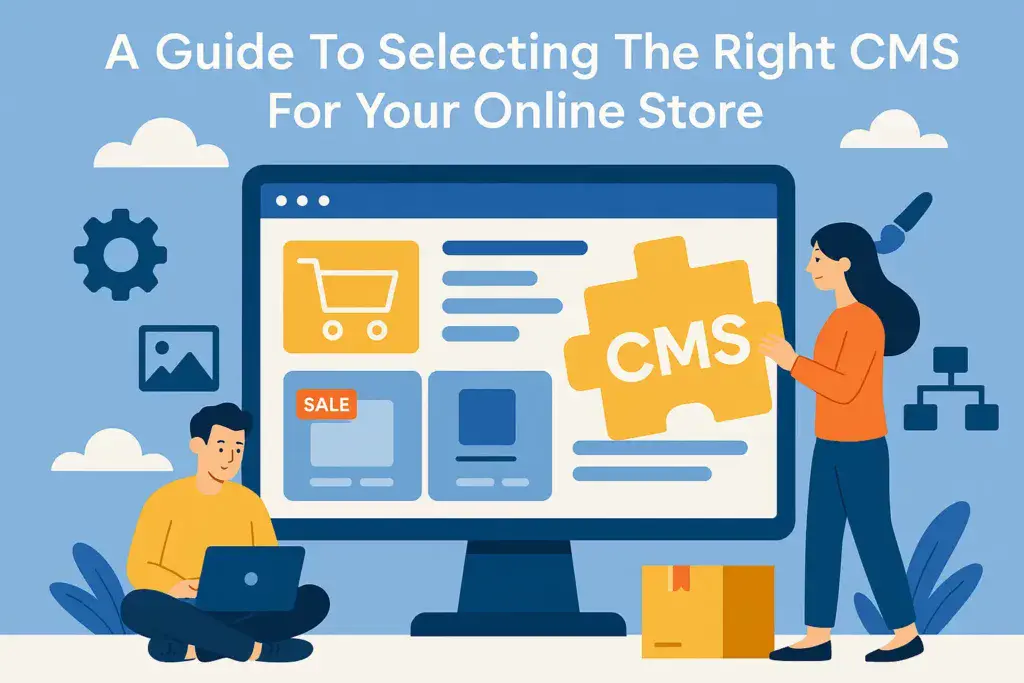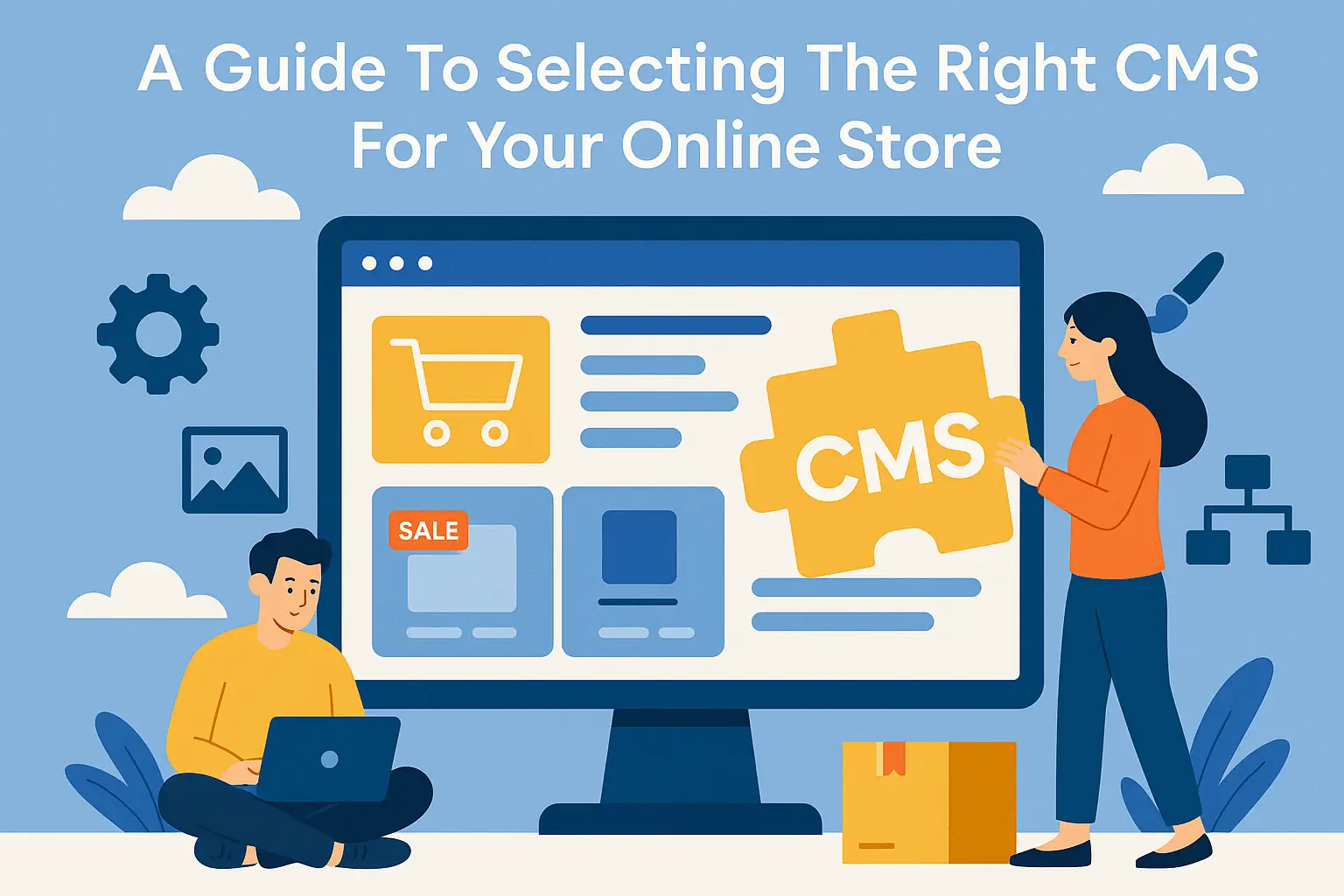
Benefits of Using a CMS for Your Online Store
In today’s digital age, having an online store is essential for any business looking to thrive and grow. With the rise of e-commerce, more and more consumers are turning to online shopping for their convenience and ease. As a business owner, it is crucial to have a strong online presence to attract and retain customers. One of the key elements of a successful online store is a Content Management System (CMS). A CMS is a software platform that allows you to create, manage, and publish digital content on your website. In this article, we will discuss the benefits of using a CMS for your online store and provide a guide to help you select the right one for your business.
One of the main advantages of using a CMS for your online store is its user-friendly interface. With a CMS, you do not need to have any technical knowledge or coding skills to manage your website. The interface is designed to be intuitive and easy to navigate, making it accessible for anyone to use. This means that you can focus on creating and managing your content without having to worry about the technical aspects of website management.
Another benefit of using a CMS for your online store is the ability to customize your website. With a CMS, you have complete control over the design and layout of your website. You can choose from a variety of templates and themes, or even create your own, to give your online store a unique and professional look. This level of customization allows you to create a website that reflects your brand and appeals to your target audience.
A CMS also offers a wide range of features and functionalities that can enhance the user experience of your online store. For example, you can easily add product descriptions, images, and videos to your website, making it more engaging and informative for your customers. You can also integrate social media platforms, such as Facebook and Instagram, to promote your products and interact with your customers. Additionally, a CMS allows you to manage your inventory, process orders, and track sales, making it a valuable tool for managing your online store.
One of the most significant benefits of using a CMS for your online store is its search engine optimization (SEO) capabilities. A CMS is designed to be SEO-friendly, meaning that it helps your website rank higher in search engine results. This is crucial for driving traffic to your online store and increasing your visibility to potential customers. With a CMS, you can easily optimize your website’s content, meta tags, and URLs, making it easier for search engines to crawl and index your site.
Furthermore, a CMS offers a high level of security for your online store. With the rise of cyber threats, it is essential to have a secure website to protect your customers’ sensitive information. A CMS provides regular updates and security patches to keep your website safe from hackers and malware. It also offers features such as SSL encryption and secure payment gateways to ensure that your customers’ data is protected.
Now that you understand the benefits of using a CMS for your online store, it is essential to select the right one for your business. When choosing a CMS, there are a few factors to consider. Firstly, you need to determine your budget and the features you require for your online store. Some CMS platforms offer a free version with limited features, while others require a monthly or yearly subscription. You should also consider the scalability of the CMS, as your business grows, you may need to upgrade to a more robust platform.
Additionally, it is crucial to research the reputation and customer reviews of the CMS platform you are considering. Look for a platform that has a good track record of customer satisfaction and provides reliable customer support. You should also consider the level of technical support and training offered by the CMS provider, as this can be beneficial for managing your website effectively.
In conclusion, using a CMS for your online store offers numerous benefits, including a user-friendly interface, customization options, and SEO capabilities. It also provides security and a range of features to enhance the user experience of your website. When selecting a CMS, consider your budget, scalability, and customer support to find the right platform for your business. With the right CMS, you can create a professional and successful online store that attracts and retains customers.
Key Features to Look for in a CMS for Your Online Store

In today’s digital age, having an online store is essential for any business looking to thrive and succeed. With the rise of e-commerce, customers are increasingly turning to online shopping for convenience and accessibility. As a result, it is crucial for businesses to have a strong online presence, and a key component of that is a Content Management System (CMS). A CMS is a software platform that allows you to create, manage, and publish digital content on your website. With so many CMS options available, it can be overwhelming to choose the right one for your online store. In this article, we will guide you through the key features to look for in a CMS for your online store.
First and foremost, it is essential to consider the user-friendliness of the CMS. As a business owner, you want a platform that is easy to use and navigate, even if you have limited technical knowledge. A user-friendly CMS will allow you to make updates and changes to your website without the need for coding or technical support. This not only saves you time and money but also gives you more control over your online store.
Another crucial feature to consider is the flexibility and scalability of the CMS. Your online store will likely grow and evolve over time, and you want a CMS that can keep up with these changes. Look for a platform that offers a wide range of features and customization options, allowing you to tailor your website to your specific needs. Additionally, the CMS should be able to handle an increase in traffic and product offerings without compromising on performance.
Security is also a top priority when it comes to selecting a CMS for your online store. With the rise of cyber threats, it is crucial to choose a platform that prioritizes security measures. Look for a CMS that offers regular updates and security patches to protect your website from potential attacks. It should also have built-in security features such as SSL encryption and secure payment gateways to ensure the safety of your customers’ personal and financial information.
Integration capabilities are another essential aspect to consider when selecting a CMS for your online store. Your website will likely need to integrate with various third-party tools and services, such as payment gateways, shipping providers, and marketing platforms. A CMS that offers seamless integration with these tools will save you time and effort in managing your online store. It will also provide a better user experience for your customers, making it easier for them to make purchases and interact with your website.
In addition to these key features, it is also crucial to consider the support and resources provided by the CMS. Look for a platform that offers reliable customer support, whether it be through live chat, email, or phone. This will ensure that you have assistance whenever you encounter any issues or have questions about the platform. It is also beneficial to choose a CMS that offers resources such as tutorials, guides, and a community forum where you can learn and connect with other users.
Lastly, it is essential to consider the cost of the CMS. While there are many free CMS options available, they may not offer all the features and support that a paid platform does. It is crucial to weigh the cost against the features and benefits offered by the CMS to determine the best value for your business. Keep in mind that investing in a reliable and robust CMS will ultimately save you time and money in the long run.
In conclusion, selecting the right CMS for your online store is a crucial decision that can greatly impact the success of your business. By considering the user-friendliness, flexibility, security, integration capabilities, support, and cost of the platform, you can make an informed decision that meets the specific needs of your online store. Remember to also research and compare different CMS options to find the best fit for your business. With the right CMS, you can create a professional and efficient online store that will attract and retain customers, ultimately leading to the growth and success of your business.
Comparing Popular CMS Options for E-commerce Websites
In today’s digital age, having an online store is essential for any business looking to thrive and reach a wider audience. With the rise of e-commerce, there are numerous content management systems (CMS) available in the market that cater specifically to online stores. However, with so many options to choose from, it can be overwhelming for business owners to select the right CMS for their online store. In this article, we will compare some of the most popular CMS options for e-commerce websites, to help you make an informed decision.
First on our list is Shopify, a cloud-based CMS that is known for its user-friendly interface and extensive range of features. It is a popular choice among small to medium-sized businesses due to its affordability and ease of use. With Shopify, you can easily set up your online store, manage inventory, and process payments. It also offers a wide range of customizable templates and apps to enhance the functionality of your store. However, one downside of Shopify is that it charges a transaction fee for each sale made through its platform.
Next up is WooCommerce, a CMS that is built on WordPress and is known for its flexibility and scalability. It is a popular choice among businesses of all sizes, as it offers a wide range of features and customization options. With WooCommerce, you have complete control over your online store, from design to functionality. It also offers a variety of plugins and extensions to enhance the features of your store. However, one drawback of WooCommerce is that it requires some technical knowledge to set up and maintain.
Another popular CMS for e-commerce websites is Magento, which is known for its robust features and scalability. It is a self-hosted platform that offers a high level of customization and control over your online store. With Magento, you can create a unique and personalized shopping experience for your customers. It also offers a wide range of extensions and integrations to enhance the functionality of your store. However, Magento is not suitable for beginners and requires technical expertise to set up and maintain.
Moving on, we have BigCommerce, a cloud-based CMS that is known for its ease of use and comprehensive features. It is a popular choice among businesses looking for a hassle-free and all-in-one solution for their online store. With BigCommerce, you can easily set up your store, manage inventory, and process payments. It also offers a variety of customizable templates and apps to enhance the functionality of your store. However, one downside of BigCommerce is that it has a limited number of free themes and charges a transaction fee for each sale made through its platform.
Last but not least, we have Squarespace, a CMS that is known for its sleek and modern templates. It is a popular choice among businesses looking to create a visually appealing online store. With Squarespace, you can easily set up your store and manage inventory. It also offers a variety of customizable templates and integrations to enhance the functionality of your store. However, one drawback of Squarespace is that it has limited e-commerce features compared to other CMS options.
In conclusion, selecting the right CMS for your online store depends on your business needs and goals. Each CMS has its own set of features and limitations, so it is important to carefully consider your options before making a decision. Whether you are looking for affordability, flexibility, or scalability, there is a CMS out there that will meet your requirements. We hope this comparison of popular CMS options for e-commerce websites has helped you in your decision-making process.
Q&A
Q: What is a CMS?
A: A CMS, or Content Management System, is a software platform that allows users to create, manage, and publish digital content on a website without needing advanced technical skills.
Q: Why is it important to choose the right CMS for an online store?
A: Choosing the right CMS for an online store is important because it can greatly impact the functionality, user experience, and overall success of the store. A good CMS should have features that cater to the specific needs of an online store, such as e-commerce capabilities, SEO optimization, and customizable design options.
Q: What are some factors to consider when selecting a CMS for an online store?
A: Some factors to consider when selecting a CMS for an online store include the platform’s e-commerce capabilities, SEO features, customization options, user-friendliness, security, and cost. It is also important to consider the scalability and support options of the CMS to ensure it can meet the needs of the growing online store.

